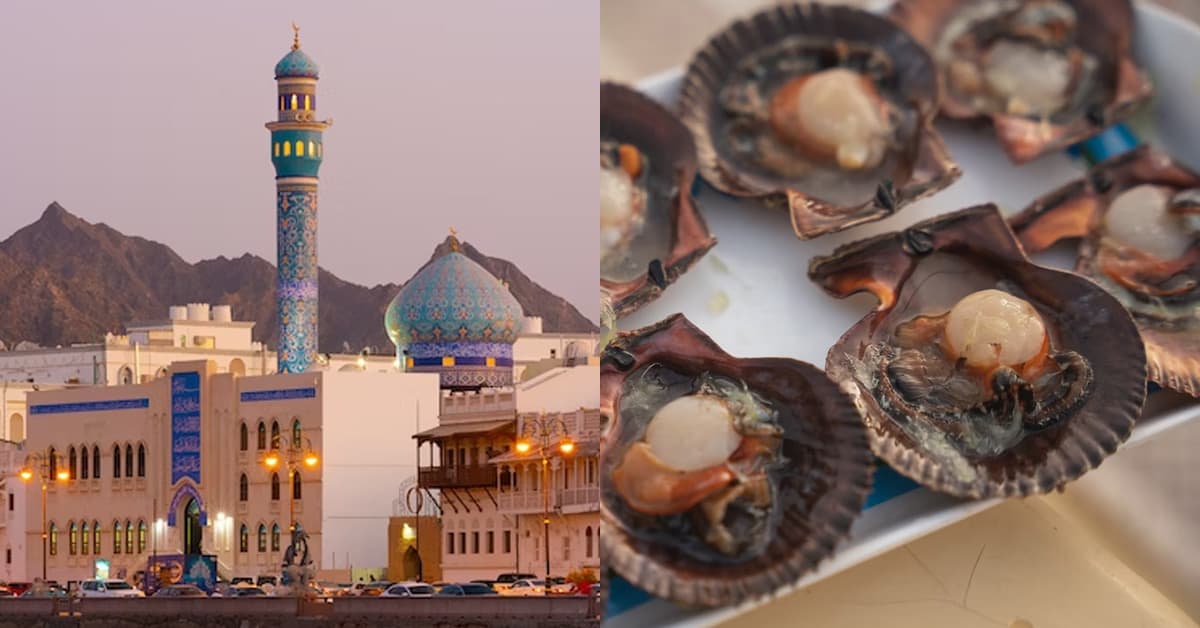Omani cuisine is a reflection of the country’s rich history and diverse cultural influences. Located on the southeastern coast of the Arabian Peninsula, Oman has been a hub for trade and commerce for centuries, which has resulted in a unique blend of flavors and ingredients in its cuisine.
Omani food is known for its simplicity, freshness, and use of local ingredients such as dates, fish, and spices. The cuisine is heavily influenced by Arabic, Indian, and East African flavors, making it a delicious and unique culinary experience.
Omani cuisine
Is Omani food halal?
Yes, Omani food is halal as the majority of the population in Oman is Muslim and follows Islamic dietary laws. Halal refers to food that is permissible according to Islamic law, and Omani cuisine typically includes meat, fish, and vegetables prepared in accordance with halal guidelines.
However, it is always advisable to check with the restaurant or food vendor to ensure that the food is halal.
What kind of food do Omani eat?
Omani cuisine is a blend of Arabic, Indian, and East African influences. Some popular dishes include:
- Shuwa – a traditional Omani dish made of marinated meat (usually lamb or goat) cooked in an underground oven for several hours.
- Machboos – a rice dish cooked with meat (usually chicken or fish), spices, and vegetables.
- Harees – a porridge-like dish made of wheat, meat, and spices.
- Omani halwa – a sweet dessert made of sugar, cornstarch, and various flavorings such as saffron, rosewater, and cardamom.
- Grilled fish – Oman is known for its fresh seafood, and grilled fish is a popular dish.
- Dates – Oman is one of the largest producers of dates in the world, and they are often served as a snack or dessert.
- Kahwa – a traditional Omani coffee made with cardamom and served with dates.
How can you tell if the food is halal in Oman?
In Oman, halal food is widely available, and most restaurants and food establishments serve halal food. However, to ensure that the food is halal, you can look for the following:
- Look for the halal certification: Many restaurants and food establishments in Oman display a halal certification from a recognized Islamic authority. This certification ensures that the food is prepared according to Islamic dietary laws.
- Ask the staff: If you are unsure whether the food is halal or not, you can ask the staff. They will be able to tell you if the food is halal or not.
- Check the menu: Many restaurants in Oman have a separate halal menu. You can check the menu to see if the food is halal or not.
- Avoid non-halal ingredients: Some ingredients are not halal, such as pork and alcohol. If you see these ingredients on the menu, it is best to avoid them.
- Eat at halal-certified restaurants: To be sure that the food is halal, you can eat at halal-certified restaurants. These restaurants are certified by a recognized Islamic authority and follow strict halal guidelines.
Is it hard to find halal food in Oman?
According to research, it is not hard to find halal food in Oman. Oman is an Islamic country, and the majority of the population is Muslim, so halal food is widely available.
Most restaurants and food outlets in Oman serve halal food, and there are also many halal supermarkets and grocery stores.
There are many traditional Omani dishes that are naturally halal, such as shuwa, a slow-cooked lamb dish, and machboos, a spiced rice dish with meat or fish.
Is Omani food healthy?
Omani cuisine is generally considered healthy as it is based on fresh ingredients such as fish, meat, vegetables, and fruits. Traditional Omani dishes are often grilled or baked, and spices and herbs are used to add flavor instead of excessive amounts of oil or salt.
However, some dishes may be high in calories and fat, such as Omani halwa, a sweet dessert made with sugar, ghee, and nuts. As with any cuisine, moderation is key to maintaining a healthy diet.
What is Omani food similar to?
Omani food is similar to other Middle Eastern and Arabic cuisines, with influences from Indian, African, and Persian cuisine. It is characterized by the use of spices such as cumin, coriander, turmeric, and cardamom, as well as the use of rice, meat, and fish in many dishes.
Some popular Omani dishes include shuwa (slow-cooked lamb), machboos (spiced rice with meat or fish), and halwa (a sweet dessert made with sugar, ghee, and nuts).
Steps to find halal food in Oman
Here are some tips to find halal food in Oman:
- Look for halal certification: Check for halal certification on the packaging or menu of the food item. The certification should be from a recognized halal certification body.
- Ask locals: Ask locals or your hotel staff for recommendations on halal restaurants or food options in the area.
- Use halal food apps: Use halal food apps such as Zabihah or HalalTrip to find halal restaurants and food options in Oman.
- Check online reviews: Check online reviews of restaurants and food options to see if they are halal and if they have good ratings.
- Visit halal markets: Visit halal markets such as the Muttrah Souq in Muscat to find halal food options.
- Avoid non-halal ingredients: Avoid food items that contain non-halal ingredients such as pork, alcohol, and gelatin.
- Ask for clarification: If you are unsure about the halal status of a food item, ask the restaurant staff or the seller for clarification.

